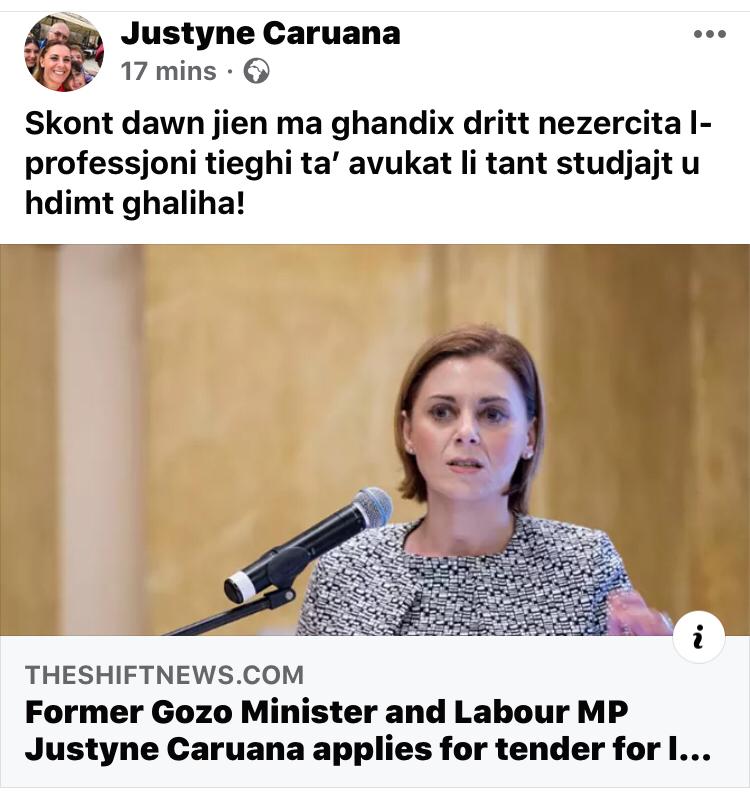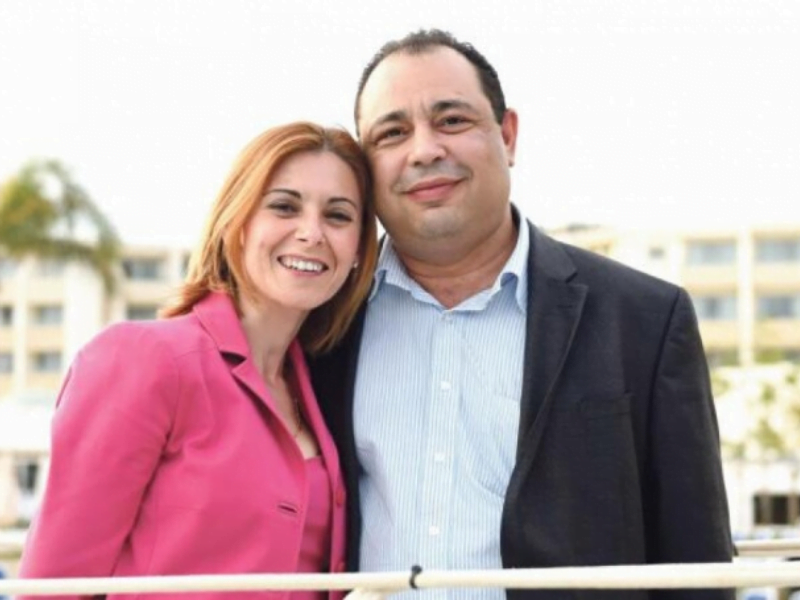When the Shift published an article on 18 March describing how former Gozo Minister Justyne Caruana applied for a public tender to provide legal services to the Local Council of Qala, it wasn’t long before the government backbencher took to social media that same day to voice her indignation.
In a Facebook post, the MP wrote: “According to these (referring to The Shift), I don’t have the right to exercise my profession as a lawyer, for which I studied and worked so hard”.
Nowhere in the article does it say or even imply that Caruana does not have the right to practice her profession. She is a seasoned lawyer. She knows perfectly well that the practice of most liberal professions is circumscribed by law and by ethical considerations.

Some of the latter may be incorporated into Codes of Ethics for the respective profession, others are not. Of course, she has every right to practice as a lawyer and currently, as things stand, there appears to be nothing to stop her from submitting her application to the Qala Local Council.
In fact, the report by the Commissioner for Standards in Public Life, George Hyzler, published in January 2019, found that two-thirds of all backbench MPs held appointments or contracts in the public sector.
What the article is highlighting is how her providing legal services to the Qala Local Council while still a sitting MP is ethically questionable. Why?
The Commissioner’s report concludes:
“[…] that the practice of employing members of parliament within the public sector, is fundamentally wrong”
And he provides a number of reasons as to why he has reached this conclusion:
“[…] It dilutes the role of Parliament to scrutinise the work of the Executive, goes against the underlying principles of the Constitution, breaches the Code of Ethics of Public Employees and Board Members, places MPs in a position of financial dependence on the Executive and hence reduces their independence, overly politicises statutory bodies and distorts their independence from the government of the day”
When contacted by The Shift in light of Caruana’s application, Hyzler reiterated the conclusions presented in the report but also noted:
“It is important to make a distinction between the (national) government (including public entities) and local councils. Local councils do not form part of the national government and do not answer to Parliament. Hence if a local council awards a contract to an MP, this does not raise the same issues as the award by government of a contract to that MP.”
Yes, there is a difference and it is true that Local Councils do not answer to Parliament. However, the powers of Local Councils still derive from what Parliament permits. And yes, the same can be said for other professions such as notaries, medical doctors, and other professions that are ‘represented’ in Parliament, which is why the article draws attention to the ethical considerations of the tender application, not to one’s right or eligibility to submit such an application.
Caruana may or may have not considered this ethical conundrum when submitting her application to the Qala Local Council but decrying the article as an ‘attack’ on one’s right to exercise one’s profession is disingenuous at best.












